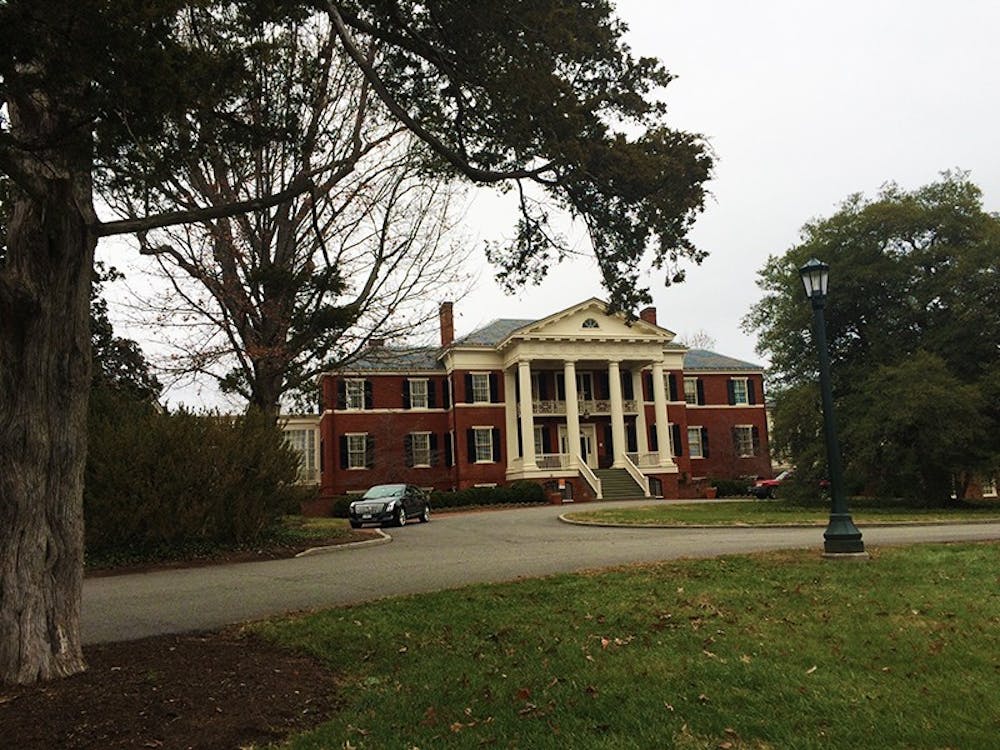With the primaries for the 2016 presidential election underway, it is time to begin considering the challenges the next administration will face. The Miller Center — an affiliate of the University which studies presidential scholarship, political history and public policy — has launched an initiative to help policymakers and political scholars start thinking ahead.
The Miller Center’s First Year Project aims to provide a blueprint for the next administration during its critical first year in office. For this project, the center will release a series of scholarly essays highlighting many of the important issues a new president will confront in his first year.
“The first year of a presidential administration is a crucial year — it sets the tone for everything that happens in the rest of the administration,” Managing Editor Howard Witt said. “There’s a golden window of opportunity in the first year… but it’s also a period of potential peril.”
Director of Policy Jeff Chidester said one of the unique qualities of the Miller Center is its strength in presidential and public policy history.
“When the new administration comes into office January, they are going to be inundated with a lot of advice,” Chidester said. “We’ve found that… they really love historical information and scholarly analysis, but they don’t have any time.”
The Miller Center hopes the First Year Project will make this transition easier for the next administration as it develops policies on major issues.
“What we want to do is engage the next administration and those who will influence it,” Chidester said. “We want to provide that historical lens. [The project] takes a look backwards on how past presidents have considered a policy area and gives recommendations for moving forward.”
In this project, the Miller Center offers its expertise in presidential and political history to supply the incoming administration with knowledge from previous administrations.
“There are questions that the next domestic policy advisor will have to confront [in the first year] that every domestic policy advisor had to confront,” Chidester said.
The First Year Project was announced publicly last October and will continue through January 2018. Over the course of a year and a half, the Miller Center will release a new volume every few months. Ultimately, there will be about a dozen volumes on policy issues.
So far, two volumes have been released. The first was a historical overview of presidential first years, and the second focused on the issue of national security. The next installment, scheduled for release at the end of February, is devoted to fiscal policy.
Other volumes will focus on racial issues, immigration issues, broken government and gridlock, communications and transportation issues.
In developing this project, the Miller Center reached out to members of current and recent administrations to create an advisory council. The council includes a number of experts, such as Melody Barnes, domestic policy advisor for President Barack Obama; Andrew Card, chief of staff for President George W. Bush; Mack McLarty, chief of staff for President Bill Clinton; the University’s own President Teresa Sullivan; and many others.
“[The project] was developed with a lot of advice and counsel from people who actually served in these positions,” Chidester said. “We asked them what [they] would have wanted in the first year.”
Though the First Year Project is led by scholars and experts, there are ways for interested undergraduates to get involved. Uma Mengale, second-year College student and Miller Center intern, has developed an associated project called the Millennial Caucus. When a volume is released for the First Year Project, Mengale surveys undergraduate students to collect their opinions on the same issues.
“While the First Year Project collects the opinions of experts and people with years of experience, I’m getting the opinions of undergraduates — the people [whom] these policies are going to affect,” Mengale said.
These volumes are not intended only for the next president and his administration.
“We have a number of different audiences in mind, first and foremost a small audience of folks in and around the president’s office,” Witt said. “[The project] is also intended for the larger policy community… think tanks, policy groups, advocacy groups… and for students, academics and scholars of political science. And then the general, informed public.”







